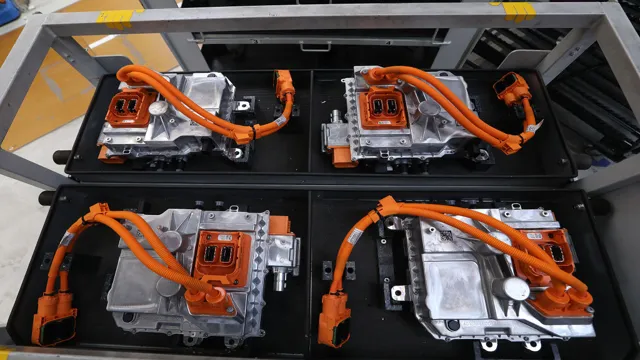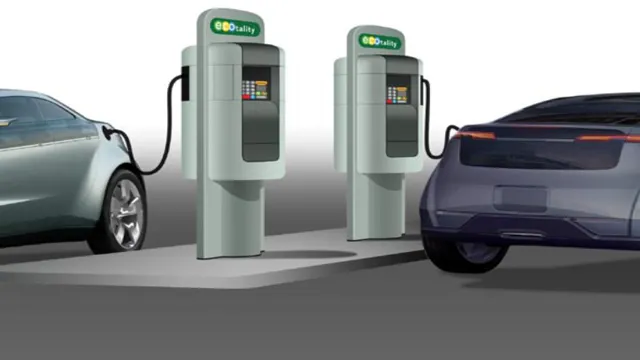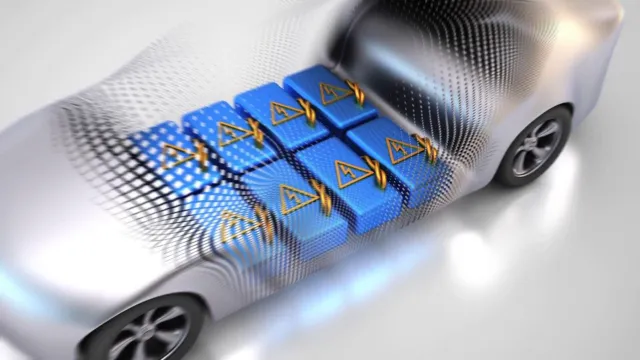The Shocking Truth About the Cost of Charging Your Electric Car Battery
If you’re considering making the switch to an electric car, one of the questions on your mind is likely “how much will it cost to charge my car’s battery?” The answer to this question isn’t necessarily straightforward, as it depends on a variety of factors such as the cost of electricity in your area, the efficiency of your car’s battery, and how often you need to charge it. However, understanding the cost of charging your electric car battery is an important consideration when making the decision to switch to electric. In this blog, we’ll explore some of the factors that impact the cost of charging your electric car battery and help you understand what to expect when it comes to powering your EV.
Factors that Influence the Cost of Charging Your Electric Car Battery
The cost of charging your electric car battery can vary depending on a few factors. Firstly, the cost of electricity in your area will play a big role. Electric car owners know that the best time to charge their cars is when the electricity rates are low, usually during off-peak hours overnight.
This can save you a lot of money on your electricity bill. Another factor is the capacity of your battery. The larger your battery, the more it will cost to charge it.
However, a larger battery will also give you a greater driving range, so it’s a trade-off to consider. Additionally, the speed at which you charge your battery can also influence the cost. Charging your battery quickly may be convenient, but it will also increase your electricity bill.
Slower charging will be cheaper, but will take longer. Lastly, the type of charger you use can also affect the cost. There are different levels of charging, with level 1 being the slowest, level 2 being medium, and level 3 being the fastest.
Level 3 chargers are the most expensive to use, but they can charge your battery in under an hour. So, depending on your needs, it’s important to consider these factors when calculating the cost of charging your electric car battery.
Electricity Rates
Electricity rates can greatly affect the cost of charging your electric car battery. There are several factors that come into play when determining the cost of electricity, including the location of your home, the time of day you charge your car, and the amount of electricity you use. For example, if you live in an area with high electricity rates, such as Hawaii or New York, you may end up paying more to charge your car compared to someone who lives in a state like Washington or Oregon with lower rates.
Additionally, charging your car during peak hours, such as during the evening or early morning, when demand is high can also increase your electricity costs. However, some electricity providers offer special rates for electric vehicle owners, allowing them to charge their cars at a lower cost during certain times of the day. Be sure to check with your provider to see if you qualify for such rates and take advantage of them to save money on your electric bill while still enjoying the benefits of driving an electric car.

Charging Time
When it comes to charging an electric car, the cost can vary based on a number of factors. Firstly, the cost of electricity in your area will play a big role in determining how much you spend on charging your battery. Additionally, the size of your battery and the speed at which it charges will also impact the overall cost.
For example, larger batteries will take longer to charge, and faster charging speeds will usually cost more. Another factor to consider is the time of day you charge your car. Many utility companies offer different rates for electricity at different times, so charging at off-peak times could save you money.
Ultimately, the cost of charging your electric car battery will depend on a number of variables, so it’s important to take all these factors into account in order to get the best possible value.
Battery Capacity
One of the most important factors to consider when owning an electric car is the battery capacity. The larger the battery capacity, the longer the car can go without needing to be charged. However, this also means that the cost of charging your electric car battery will be higher.
Other factors that can influence the cost of charging include the type of charger being used, the time of day when charging occurs, and the price of electricity in your area. It is important to keep these factors in mind when deciding when and how to charge your electric car battery. By understanding the various factors that influence cost, you can make informed decisions that optimize the battery life of your electric car while also keeping costs under control.
Average Cost of Charging Your Electric Car Battery According to Research
The cost of charging your electric car battery is a topic that many people are interested in. According to recent research, the average cost of charging an electric car battery is around $2
This calculation is based on a rate of $0.13 per kilowatt-hour (kWh), which is the average rate throughout many states in the US. However, the cost of charging can vary depending on the time of day and location.
For instance, charging your car at night during off-peak hours can save you money as the rate can be as low as $0.06 per kWh. On the other hand, charging your car during peak demand hours can cost you more.
It’s worth noting that the cost of charging an electric car battery is significantly cheaper compared to the cost of filling up a tank with gasoline. Overall, the cost of charging an electric car battery is relatively affordable and cost-efficient in the long run. So, if you’re considering buying an electric car, don’t let the fear of expensive charging deter you.
Cost Per Kilowatt Hour (kWh)
If you’re thinking about purchasing an electric vehicle, it’s important to consider the cost of charging the battery. The average cost per kilowatt hour (kWh) varies based on location, but according to recent research, the national average is around $0.13 per kWh.
This means that a car with a 60-kWh battery would cost around $80 for a full charge. However, it’s important to note that charging costs can also vary depending on time of day and the type of charging station used.
For example, charging at home during off-peak hours can be more cost-effective than using a public fast-charging station during peak hours. It’s also important to consider the environmental benefits of electric vehicles, which can lead to long-term cost savings and a reduction in carbon emissions.
Cost of a Full Charge
The average cost of charging your electric car battery may vary depending on several factors, including the model of your vehicle, the cost of electricity in your area, and the distance you travel. However, according to recent research, it is estimated that the average cost of a full charge for an electric car battery ranges between $7 and $1 This is significantly lower compared to the cost of a full tank of gas for a traditional fueled car.
Additionally, the cost of electric charging has been found to be more stable and less volatile compared to gasoline prices. This means that the cost of charging your electric car battery is more predictable and less susceptible to sudden market fluctuations. Overall, electric car owners can enjoy significantly lower fuel costs compared to traditional car owners while also making a positive impact on the environment.
Comparison to Gasoline Cost
One of the biggest selling points of an electric car is the cost savings on fuel compared to gasoline vehicles. According to recent research, the average cost of charging an electric car battery in the United States is around 13 cents per kilowatt-hour (kWh). This means that a typical electric vehicle with a battery pack of 60 kWh would cost around $
80 to fully charge. To put this into perspective, a gasoline vehicle that gets 30 miles per gallon (MPG) would cost roughly $150 to travel the same distance as a fully charged electric vehicle.
This cost difference can add up significantly over time, especially for those who commute long distances daily or take frequent road trips. With more charging stations being installed across the country and advancements in battery technology, the cost savings of owning an electric vehicle will only continue to grow.
Tips for Saving Money on Charging Your Electric Car Battery
If you’re the owner of an electric car, you’re probably interested in finding ways to save money on charging your battery. Luckily, there are several tips you can follow to help reduce the cost of charging your electric car battery. For starters, try charging your car during off-peak hours when electricity rates are typically lower.
You can also consider installing a home charging station, which can help you save money in the long run by avoiding the higher costs of public charging stations. Additionally, it’s important to pay attention to the way you drive your electric car. Avoid harsh acceleration and braking, as these actions can drain your battery quicker and result in more frequent charging.
Another helpful tip is to keep your car’s tires properly inflated, as this can help improve your battery’s efficiency. By following these simple tips, you can help keep the cost of charging your electric car battery as low as possible.
Charge During Off-Peak Hours
One of the best ways to save money on charging your electric car battery is by taking advantage of off-peak hours. These are the times when electricity rates are typically lower, and the demand for electricity is lower, too. By charging your car during these hours, you can significantly reduce your charging costs.
But how do you know when the off-peak hours are? Well, it varies depending on where you live, so the best thing to do is to check with your electricity provider. They can give you specific information on the times when electricity rates are lower. However, as a general rule, Off-peak hours usually occur during the early morning hours or late at night.
So, setting a timer to charge your car during these hours is the best way to take advantage of them and save money. Not only will you be able to save money, but you’ll also be contributing to a greener environment by reducing your carbon footprint!
Invest in a Home Charging Station
Investing in a home charging station can be a great way to save money on charging your electric car battery. If you currently rely on public charging stations, you may be paying extra fees and wasting time driving around to find an available spot. With a home charging station, you can simply plug in your car overnight and wake up to a fully charged battery.
Plus, you may be able to take advantage of lower electricity rates during off-peak hours, further cutting down on your charging costs. It’s like having your own personal gas station in your garage! So why not consider making the investment and enjoy the convenience and cost-savings of having a home charging station for your electric vehicle?
Take Advantage of Free Charging Stations
As electric cars gain popularity, charging them up has become increasingly convenient & affordable. One of the main ways to save money on charging is to take advantage of free charging stations, which can be found at certain shopping centers, workplaces, and other public locations. These charging stations rely on partnerships between businesses and electric car charging companies, with the cost of the electricity being covered by the business as a way to incentivize electric car owners to visit and shop at their stores or offices.
So not only does it save you money, but it could save the businesses money too, by giving them your valuable business. As with any public amenity, it’s important to be aware of any restrictions or time limits, but taking advantage of free charging stations can help you stretch your dollar and feel good about supporting businesses that support green technologies.
Conclusion
In conclusion, the cost of charging an electric car battery is like a game of Sudoku. It requires a bit of strategy and careful planning to make sure you don’t overcharge your wallet, but once you master it, you’ll be able to power up your ride without breaking the bank. So, go ahead and plug in that charger, and remember that with a little math, you can always stay ahead of the game.
“
FAQs
How much does it cost to charge an electric car battery?
The cost of charging an electric car battery may vary depending on the electricity rates in your location and the capacity of your car’s battery. However, on average, it can cost around $10 to $15 to fully charge an electric car in the United States.
Can I charge my electric car battery at home?
Yes, you can charge your electric car battery at home by installing a Level 2 charging station. This may require some electrical work to be done in your home, and it can cost around $500 to $1,500 for installation.
How long does it take to fully charge an electric car battery?
The time it takes to fully charge an electric car battery may depend on the type of charging station being used and the capacity of the battery. On average, it can take around 4 to 8 hours to fully charge an electric car battery using a Level 2 charging station.
Are there any free electric car charging stations?
Yes, some public charging stations offer free charging for electric cars. However, these stations may have limited availability and may not be located in areas that are convenient for users. It is important to research and plan ahead to find free charging stations in your area.


